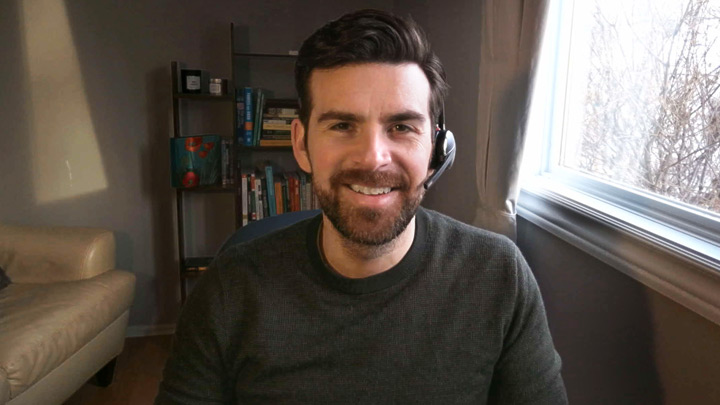
March 3, 2023

Outside of his role with AHS, Keith Goertzen is also president of the newly formed Social Workers Association of Alberta — a body he believes will amplify the voice of social workers across the province. Photo Supplied.
Story by Nathan Downey
Our health and well-being go far beyond what our eyes can see and what medical tests can tell us. Our health is also shaped by a wide range of social, economic and environmental conditions.
Alberta Health Services (AHS) employs more than 2,400 social workers who help to complete Alberta’s healthcare picture by addressing our underlying, non-medical factors.
Known as the social determinants of health, these factors include poverty, housing, food security, social support and working conditions — and they profoundly affect overall wellness.
Social workers at AHS care for Albertans in a variety of settings and capacities. They work one-on-one, at the community level and in roles that impact wide segments of society. Every year in March, we celebrate the important contributions of social workers across the province during Social Work Week.
“I think social workers are taught to challenge the status quo. We’re willing to ask tough questions about how we do things and whether our systems are serving the needs of the people and communities we work with,” says Keith Goertzen, director of Policy Services, who credits his social work background with making him a better policy leader.
“Social workers learn to self-reflect and be aware of our own biases. We aim to see people and issues from a holistic perspective,” he adds.
Goertzen leads a multidisciplinary team of advisors and document management professionals who work with subject-matter experts throughout AHS to develop organization-wide corporate and clinical policy.
“Policy impacts patient care,” he says. “Some of the most rewarding work I do is when healthcare providers and frontline leaders come to us with problems to solve.”
Goertzen’s career shift to policy development from frontline social work demonstrates the broadly-applicable set of tools that come with a degree in social work.
“Health and well-being are so heavily impacted by the social determinants of health that my social work background is always relevant in the policy work we do,” he adds.
This background has helped Goertzen promote AHS policy that considers social determinants of health, diversity and inclusion — and also incorporates the voice of patients and families in the policy development process.
It’s also helped in specific projects such as promoting recovery-oriented addiction and mental health care and developing policy with the Indigenous Wellness Core that encourages access to spiritual ceremonies in AHS facilities.
Social workers are also trained to work alongside multidisciplinary teams and mobilize networks to benefit their clients — training that has helped Goertzen build the kinds of organizational relationships it takes to revise AHS’ Policy Development Framework.
Social work, Goertzen believes, offers a powerful perspective to improve our healthcare system.
AHS is celebrating Social Work Week (March 6–10).